BABYLON - GONE METROPOLIS
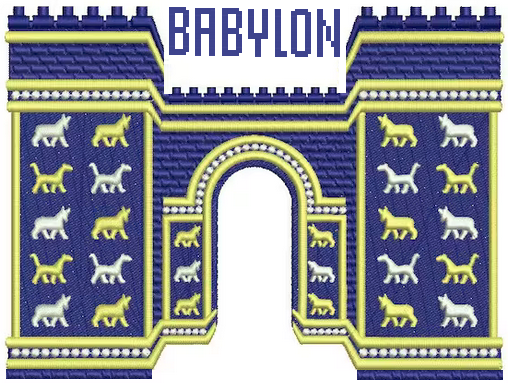
indeed, there is no babylon anymore - yet it is well-known where it was, and what it was, this once enormous and now legendary metropolis. about it i herewith present an essay.
/// where was it located?
babylon was built on both banks of the river euphrates, about 80km south of baghdad. its remains, ruins, are in the current city hillah.
/// what were its tasks?
to be a capital city, with political and religious and commercial matters.
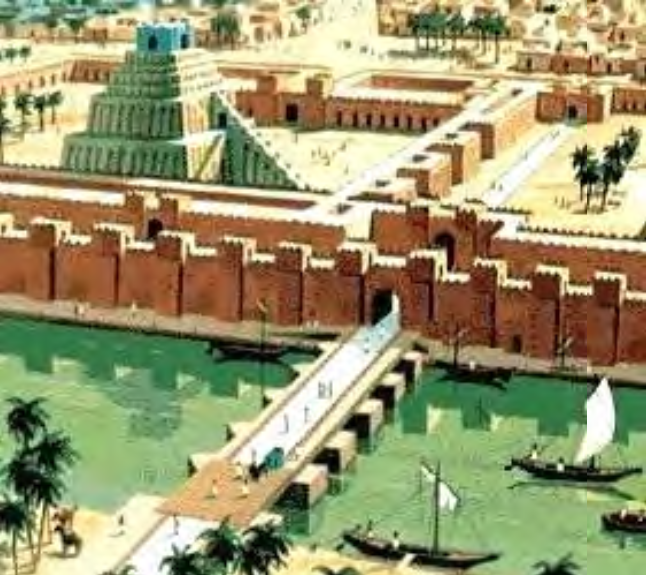
/// which is/was its most famous building?
the so-called "tower of babel", the religious center for about 2500 years.
/// when has babylon been founded?
it happened in the 23rd century bc., by the akkadian kingdom
/// power of it?
it seems that babylon was at least twice the largest city in the world: 1770-1670 b.c., and 612-320 bc.
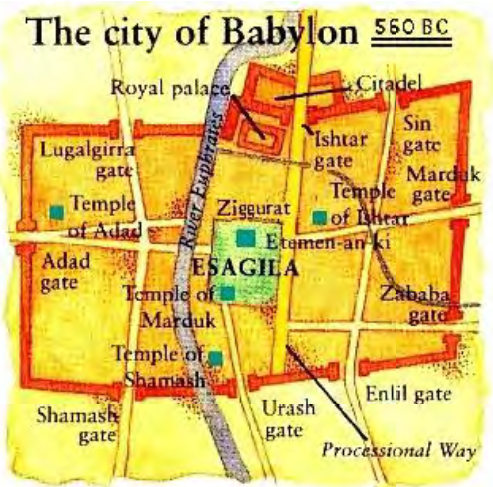
/// when was the temple built?
this building, called etemenanki, and later also "tower of babel", was built several times, as well as razed repeatedly. it is not clear when it was first erected.
first speculation: sargon the great ruled 2334-2279 bc and claimed to have built temples in babylon.
second speculation: famous king hammurabi (1792-1750 bc) transformed the city into one of the most powerful and influential in all of mesopotamia.
third speculation: king esarhaddon (681-669 bc) re-built babylon and returned it to its former glory.
/// how about its design?
it was a ziggurat, and about 90 m high. archaeologists have created models of it (one is below).
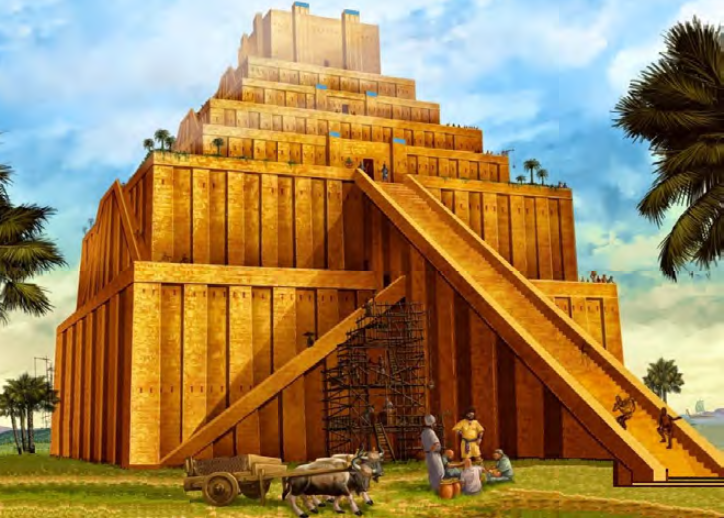
/// did babylon have a "chief goddess"?
it had indeed, ishtar, the goddess of love and sexuality and fertility. she may have also understood as the goddess of war.
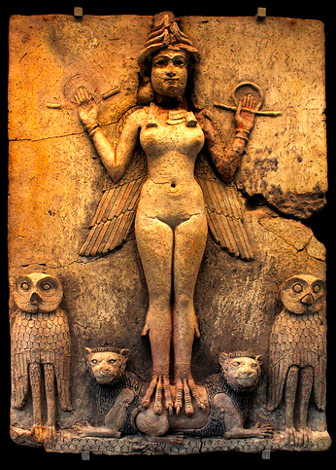
/// where were the "hanging gardens"?
in very many descriptions of babylon the "hanging gardens" were pointed out as one of its greatest features! below is one sketch of their assumed nature.
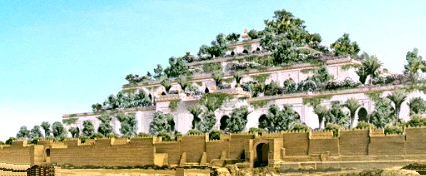
so, where in babylon were they? any remains? actually, none at all. why? because the "hanging gardens", while existing, long time ago, were in niniveh, the core akkadian city, not in babylon!
/// alexander's influence?
in 331 b.c. babylon surrendered to the macedonian king alexander the great, who confirmed its privileges and ordered the restoration of the temples, including etemenanki. he had even planned to eventually make babylon his imperial capital.
yet in 323 he died there.
/// final fate?
in the muslim conquest of the area in 650 a.d., whatever remained of babylon was swept away and "buried beneath the sands". in the 10th century it died completely; only rough ruins are left.
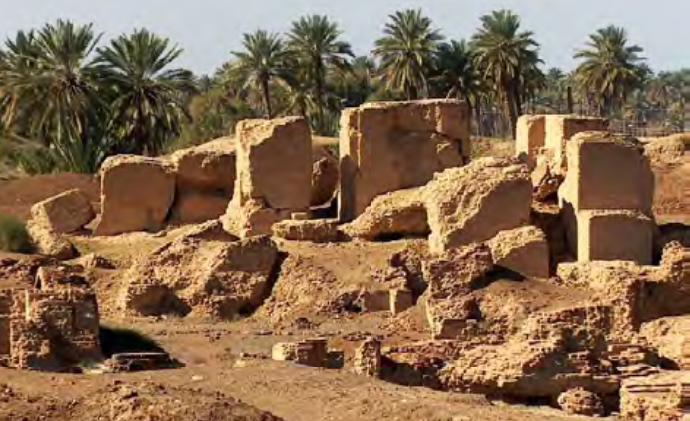
/// remains of the babylon temple?
nothing, except of some signs of its former shape in the landscape (see pic).
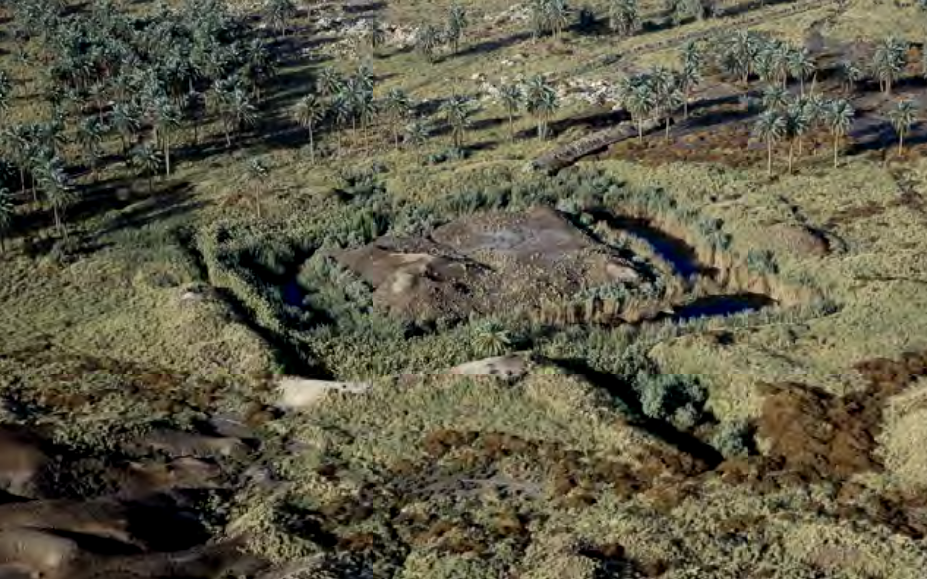
when i walked along there - long time ago, in 1978 - i couldn't see anything of this once so celebrated temple.
/// why was the babylon temple so famous?
mainly based on many citations in the christian bible, it was always seen as a symbol of mighty architecture, as well as a symbol - until today - of multi-cultural perspectives, beyond the religious purpose of it.
since about 1400 a.d., a lot of artists created paintings of what they believed to be the appearance of the babel tower. the most famous one is by breughel the elder.
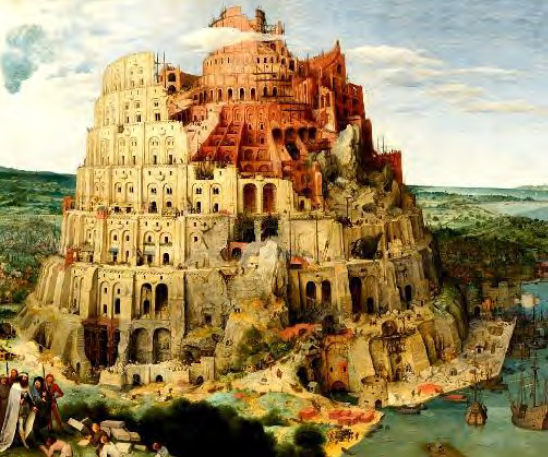
the collapse of the temple was also several times modeled.
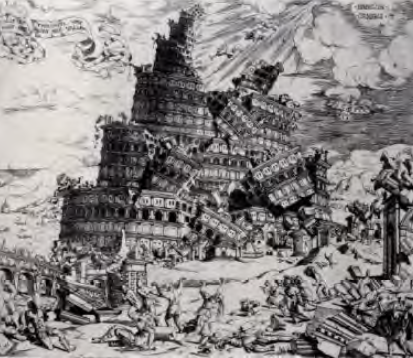
all this was of course just phantasy - none of the artists had ever seen this temple which perished around 400 bc, they couldn't! yet their paintings are the reason that this sacred building remains unforgotten.
